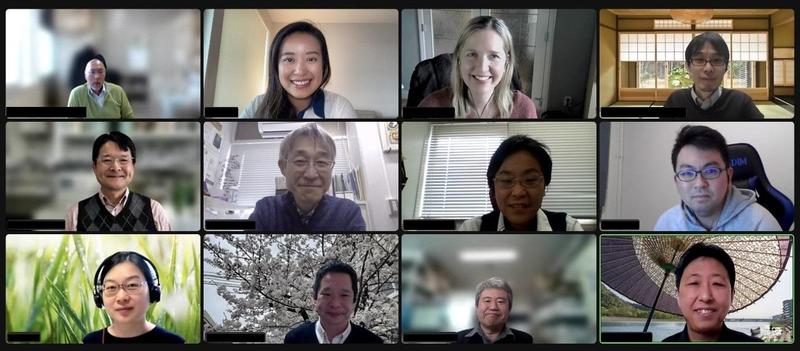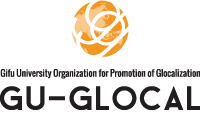From Tuesday, February 22 to Wednesday, March 30, 2022, eleven Gifu University professors from the faculties in Education, Regional Studies, Medicine, Engineering, Applied Biological Sciences and River Basin Research Center took part in the third online training program in English-Medium Instruction (EMI https://ext.ualberta.ca/els/emi), which was provided by English Language School, Faculty of Extension, University of Alberta (UofA), Canada.
Due to the global mobility restrictions from COVID-19, the EMI program has been conducted online since 2021, and the third “Communication Skills for Global Citizenship Online” program was offered to the participants of first and second programs for higher achievements.
Participants took two courses, each of which included 120-minute synchronous instructions per session per day for 14 days through Zoom video conferencing platform.

Participants of third online training program
(1) English for Teaching Purposes (Total: 7 days)
This course focuses on the specific disciplinary terminology and general academic language necessary for teaching content in EMI contexts. Participants will also be introduced to strategies for assisting their students to learn and use specialized vocabulary in English. Moreover, the participants were acquainted with up-to-date online tools useful for student-centered learning and efficient assessment. On the final day of the program, each participant provided a micro-teaching (10 minutes) in their respective areas of expertise and obtained valuable feedback from their UofA instructors and other participants.
(2) Intercultural Dimensions of Teaching and Learning in English Medium Instruction Contexts (Total: 7 days)
The growing presence of international students in EMI contexts challenges educators to interact effectively with students from diverse cultural backgrounds. This course will help participants to understand the theoretical and practical dimensions of intercultural competence, intercultural pedagogy, and discipline-specific intercultural differences. Participants actively shared their experiences and discussed how best they can provide lectures for students and enlighten them about the importance of diversity as crucial element for inclusive society and reaching the goals of Sustainable Development Goals (SDGs). At the end of the program, each participant made an intercultural class presentation (10 minutes) and exchanged opinions with UofA instructors for best teaching method and education towards global citizenship.
Both courses are well-designed to maximize the effectiveness of a combined platform between lectures and speeches by guest speakers. Participants increased their English language and pedagogical proficiency necessary to enhance students’ level of understanding, and learned how to create a venue for acceleration of students’ diversity and their growth.
Participation in the program by our faculty members is expected to result in crafting new human resource training programs for glocalization (global + local) namely, internationalization deeply rooted in the community, and whereby we can translate our “Future Vision” into reality. Efficient class operations for a mixture of Japanese and international students, and classes taught in English for successful implementation of joint degree programs with overseas partner universities are also highly anticipated as one of great accomplishments of the program.






